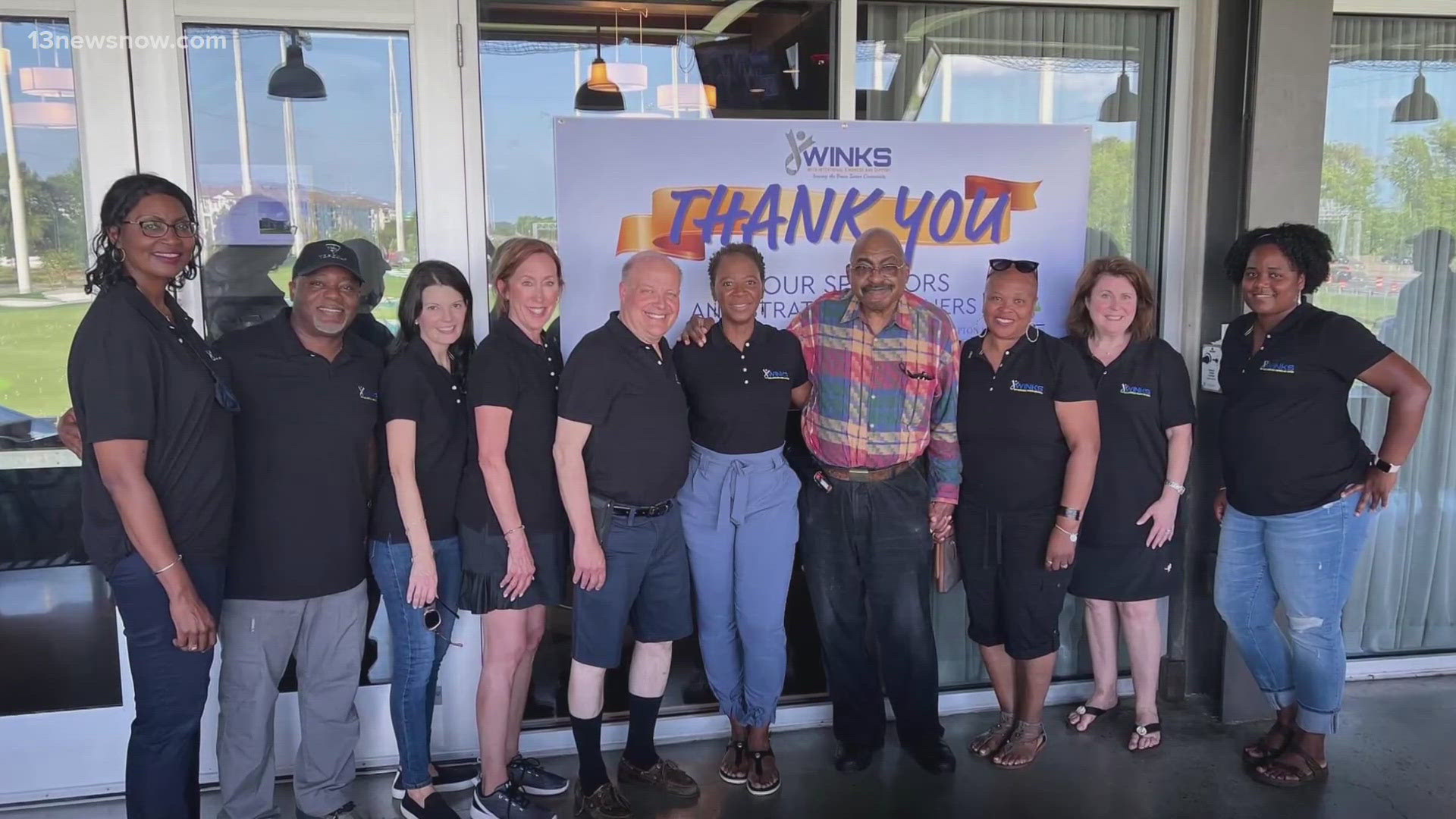SUFFOLK, Va. — Samaria 'Sam' Hunter is a retired Naval Officer and enjoys running marathons. In March 2015, she began having what she thought were spasms in her legs.
"It was chalked off to, it's the running," she said.
But the problems persisted.
"It went all the way through July [2015] before it was realized that it was something serious," Hunter said. "[One] particular night, the spasm walked from my bottom of my foot all the way up my left side. And I could feel it going over my heart, my abdomen, into my head."
Soon after, she was diagnosed with a meningioma on the right frontal lobe-- a brain tumor.
"You think, 'Is my life [going to] end?' I had my five-year-old with me at the hospital, and he heard the diagnosis. And so, you... you don't know," Hunter said, noting that the diagnosis immediately triggered a rollercoaster of emotions. "I didn't know a whole lot about brain tumors. I think I [knew] one person previously who had been diagnosed with a brain tumor, because it's not a common diagnosis. Of all things, you do not expect the worst-case scenario."
As she worked with her doctors to form a treatment plan, Hunter said she was glad to have great medical coverage.
"I had choice of care," she said. "Because of my retired military service, cost was not an issue."
Hunter said she was also surrounded by support throughout the treatment and recovery process and had a lot of connections throughout the community. After learning about her diagnosis, a neighbor recommended she connect with Dr. Allan Thornton, a radiation oncologist at Hampton University Proton Cancer Institute.
"I was in his office two days after I was diagnosed," Hunter said. "Before I went to my neurosurgeon, I met Dr. Thornton."
The two eventually discussed their mutual desire to help others living with a brain tumor after Hunter shared that she realized not everyone had the resources and support she did.
"My wife and I, at [Massachusetts] General Hospital back [at] Harvard years ago, used to help run the brain tumor support group," said Dr. Thornton, noting that it was a valuable asset to both the patients and the medical staff. "I realized over twelve years of working there how important the support for these patients was-- not only in the treatment process, but also in the follow-up and the diagnosis period. There simply was no other avenue for informational flow for these patients. Neurooncologists, the cancer doctors, relied greatly on these support groups."
Dr. Thornton said the experience was part of the reason why he joined the board of Hunter's nonprofit WINKS, which stands for 'With INtentional Kindness and Support'. Hunter launched the group in 2015 a few months after her brain tumor surgery with a mission to improve the quality of life of patients and their families.
"It's a necessary organization to provide information for patients newly diagnosed with these unusual tumors," Dr. Thornton said. "It's such a daunting area of treatment because the tumors are oftentimes not recognized, not well-known by the oncology community. Even the neurosurgical community oftentimes does not deal with these tumors on a frequent basis."
One of the main ways in which WINKS distributes guidance and resources is through Brain Tumor Power Packs, which are bags filled with items for patients across Hampton Roads.
"They have care items, or comfort items, as we call it, like blankets and hats.... They have awareness items to say, 'we are here in the area, and we will provide you support'... But most importantly, [they have] information," Hunter said. "So, it has a comprehensive guide, because we want them to make informed decisions about care. And so, that Brain Tumor Power Pack was birthed right out of my experience of not knowing and not having."
The nonprofit also has several programs designed to help people cope with their diagnosis and navigate their new normal.
Through the Empathy in Action initiative, WINKS provides need-based grants for living expenses and transportation, shares resources and raises awareness as part of the Eye Opener program, and facilitates individual and quarterly group sessions through Encouraging Nods Brain Tumor Support.
"We've called hospitals to get them [the] help that they need," Hunter said. "We've answered questions. We've leaned on Dr. Thornton a lot when patients don't get those answers they need from doctors or didn't think of the question when they were there."
Dr. Thornton said providing support for patients is often just as important after treatment as it is during the process.
"[They] have physical and mental challenges that need to be addressed. And we hope to address those as well," Dr. Thornton said. "This is a wonderful group of people that is, I think, fulfilling a very important mission in this community. And it's so gratifying to see our patients blossom and recover from their illness with the support of the group. It truly is a team effort of the community and the providers here."
WINKS' adage is to "lift the burdens so they can focus on the fight", Hunter said, noting that the group even serves as her reminder that she's not fighting alone.
While malignant brain tumors are considered to be rare, "there's about 700,000 people living with brain tumors. And we estimate about 3,600 are in the Hampton Roads area," Hunter said, as she started to reminisce about one in particular. "I was diagnosed in July [2015]. A good friend and shipmate of mine was diagnosed in October [2015]. She passed away as I was going through treatment. And so, I take her with me on this journey. And I ran the Marine Corps Marathon three days after radiation treatment, with my doctor's approval, in honor of Terri Bradshaw."
Click here to contact WINKS if you or someone you know could use support after a brain tumor diagnosis. You can also inquire about becoming a board member, signing up to volunteer or make a donation through the WINKS website.

